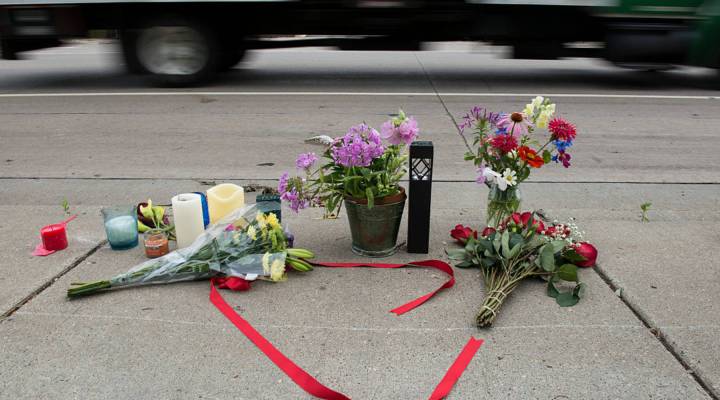
Facebook and livestreaming tragedies

The day after police fatally shot Alton Sterling in Baton Rouge, Louisiana, Philando Castile in a suburb of St. Paul, Minnesota was fatally shot in a car. His girlfriend broadcast the aftermath of the shooting live on Facebook. Many people are are arguing that the live video that aired on Facebook is profoundly important to the conversation about race and violence in this country.
Deepa Seetharaman is a reporter covering Facebook and other social media at the Wall Street Journal. Marketplace host Molly Wood talked with her about the role of these live videos in our country today.
On how live videos are being used online:
Well I think you are seeing people use tools that have been developed by Facebook, Periscope, a lot of these other social platforms, to articulate and express what’s happening in their lives, and sometimes that’s violent. It allows people to see things that have largely been hidden from the public eye in years past. It amplifies this sense of intimacy. I mean Facebook likes to talk about Live as a way to provide a raw and unfiltered look at your life. And that’s what some of these videos are doing. They’re providing a completely unmediated experience for the viewer that really puts them into the position of the person filming.
On the conversations happening at Facebook in the aftermath of Philando Castile’s death:
I imagine there are conversations around content moderation. You know, how do we treat events like this? Should they be subject tothe normal rules surrounding violence or is there some kind of special dispensation that should be created for videos about news events, or videos that depict injustice. I think it’s a very tough line to straddle.
On why these live videos are so impactful:
There’s something special about live video that doesn’t need to be uploaded, that can just film events as they’re happening in real time. It’s not edited, it’s not clipped in any kind of way, there are no length requirements and you don’t know what’s going to happen. That is an even more powerful experience, especially if you’re one of the viewers looking at it in real time.
Click the player above to hear the full interview.
There’s a lot happening in the world. Through it all, Marketplace is here for you.
You rely on Marketplace to break down the world’s events and tell you how it affects you in a fact-based, approachable way. We rely on your financial support to keep making that possible.
Your donation today powers the independent journalism that you rely on. For just $5/month, you can help sustain Marketplace so we can keep reporting on the things that matter to you.


















